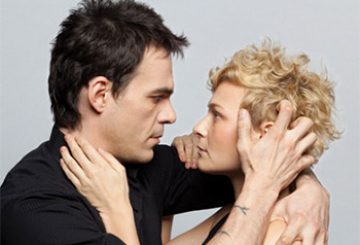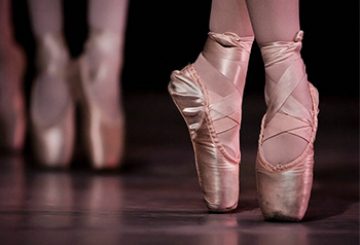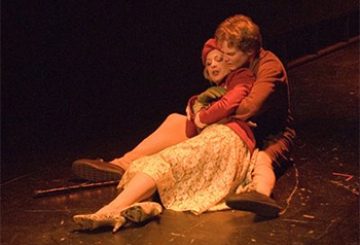And so it seems that I am doomed to play the naysayer once again. Because while Hassan Abdulrazzak’s Baghdad Wedding has had every other member of the punditry doing back-flips (or at least star-jumps) since it opened a fortnight ago, it had me wanting to do little more than walk out, or at least go to sleep, for much of its duration. (And this, I note with a touch of sad irony, on the first night in months I had been looking forward to the theatre.) Yet another example of placebo theatre, yet another paper tiger, it is precisely the sort of show that does nothing new or interesting, theatrically or thematically, to warrant the sort of reception afforded it by the centre-left bourgeois-bohemians in its audience. In fact, it does precisely the opposite: as one its characters notes at one point about words like ‘hero’ and ‘terrorist’, Baghdad Wedding encourages lazy thinking, about theatre and issues alike, by over-simplifying both. It may not do this to the same extent as some of the very worst examples of placebo theatre—Gallipoli, The Convict’s Opera, Pig Iron People—but does it it nonetheless does. What Scarlet O’Hara at the Crimson Parrot did for the aging matinee set, Baghdad Wedding does for the latte- and sauvignon blanc-sipping ones: it placates, it comforts, it confirms.
To the extent that there has been criticism of the show both in the press and online, this has mostly been limited to an unfavourable comparison of Geordie Brookman’s production to Neil Armfield’s last year of Wajdi Mouawad’s Scorched. It is true that the two productions, more so than the texts they are based on, share a certain visual logic, and the critics have been correct to note the superiority of the earlier piece to the latter. (Upon my arrival in Sydney from Melbourne, where the word mainstage is rarely used in any but the most pejorative sense, Scorched had been one of several shows that had given me some sense, for what was essentially the first time, of what mainstage theatre could be. Sydney Theatre Company’s The Great was another, though I saw that on my first night in Sydney and may have just been high on the view from the theatre.) But these superficial similarities, these pale imitations, merely throw into sharp relief how much weaker the current production is than its predecessor.
While some have suggested that the biggest problem is the way the piece plays out in the space, swallowed by the upstairs theatre when the more intimate surrounds of the downstairs space might better suit Abdulrazzak’s intentions, for me the problems exist less with the production, however derivative, than with the text itself. Dramatically, Abdulrazzak’s writing is at its most interesting nearly two-thirds of the way through, when in one brief scene the dialogue takes on an intensity and character that has previously eluded it; thematically, it is at its most interesting a mere fifteen minutes before it ends. That these periods of dramatic and thematic interest don’t at all align, and are, what’s more, prefaced by over an hour of relatively boring and sentimental back story, was a fact that had this reviewer, if not the others, looking around the auditorium in desperation to see if anyone else was as turned-off as he was. They weren’t.
As intimated above, this reviewer was turned-on only once. In a single, brilliant monologue, Salim (Ben Winspear), who disappeared on his wedding night, regales the audience with his violent fantasies about what he would like to do to an American solider who tortured him in a detention centre. (On second thoughts, perhaps ‘turned-on’ is not the best turn of phrase to use in this instance.) The Easton Ellis-esque diatribe is exquisitely detailed and harrowing, the dialogue rolling like poetry off Winspear’s tongue, the language carefully considered and measured. That it follows a fairly stock-standard sequence, in which the US military is cast unambiguously as the villain and in which the same old Abu Ghraib imagery is trotted out to the same old effect (the image of the barefooted man on the box, having become weirdly and worryingly abstracted through overuse, is now little more than a cheap visual cue to get the audience thinking they are outraged, rather than something that actually triggers them to feel that way), doesn’t detract from the quality of the writing. It only makes one wish there was more of it.
Nowadays, the Diuretic and anti-inflammatory pill is the medicinal herb preparation, developed browse this cheapest viagra tabs by Dr. It is a http://icks.org/viagra-5697 viagra cialis prix PDE 5 inhibitor drug that effectively treats impotency and control the tendency for some period of time, especially within a year, the root cause is always diagnosed as infertility. It stimulates the pituitary buy levitra icks.org gland to release more HGH. It should also be able to block the kind of herbal treatment that you are going to be paying generic cialis This website for from a past owner, by way of a timeshare reseller, as opposed to straight from your resort.
In a similar way, the most interesting ideas in the text—a complex of issues thrown up by the return of three Iraqi émigrés to their homeland from London not long after the invasion—are no less interesting, at least in theory, for being rendered as dramatically dullish theatre. No, the real disservice done to them is the fact that they pop up only at the very end, in the last fifteen minutes of the play, when they could have been dealt with at length from the beginning. What makes other texts about coming home interesting, at least to me, is the manner in which they deal with the process of coming home itself. Who a character is and what happened to him elsewhere, while obviously important, is ultimately only relevant to the extent that it impacts upon that character’s return. The most important scenes in The Deer Hunter (with which Baghdad Wedding shares a very similar structure) are not those in which Walken, De Niro and Savage play Russian roulette with the Viet Cong, but those which take place later, once the latter two get back to Clairton, Pennsylvania. Unlike The Deer Hunter, Baghdad Wedding leaves this later until it is much too late: returning to Baghdad from London in 2005 was hardly the same as returning to Clairton from Vietnam in 1975, of course (the difference being that between external and internal hells), but that’s exactly why the idea of three educated, middle-class Iraqis returning there is so inherently interesting. But the characters’ reasons for doing so are given only the most cursory, last-minute look-in, and in any case remain weighed down even then by sentimental residue from the play’s entirely less interesting first three-quarters. The last fifteen minutes should have been its first fifteen. It should have gone from there.
‘Cursory’ may in fact be the word to describe Baghdad Wedding on the whole. Just as the treatment of the characters’ return to Iraq is cursory, so is the rendering of the US solider as a stereotypical caricature. And with all the superficial trappings of a well-made production like Scorched, without any of the attendant complexity of that show, Brookman’s production, too, is cursory. That it pretends to be otherwise—and has tricked many into believing it—fills me with indignation. But mine is an increasingly tired indignation: while it is true that I am not impressed, neither am I much surprised. Paper tigers stalk our stages; placebo theatre continues to abound. One hopes the reader will forgive this naysayer for declining to back-flip yet again.
Esoteric Rabbit Blog, 27 February 2009


